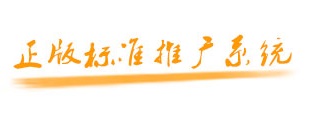澳大利亚推动ISO制定节水国际标准
澳大利亚将引领国际共同努力,帮助消费者选择高效节水家电及卫生器具,并使制造商在全球范围内进行竞争。
澳大利亚成功获得国际上对建立一个新的国际标准组织(ISO)水效率项目委员会的支持,这是ISO技术管理局于2018年2月作出的决定,从而表明ISO技术管理局投票支持澳大利亚的提议。
澳大利亚标准协会的首席执行官Bronwyn Evans(布朗温•埃文斯)博士表示:“这将使澳大利亚最大限度地抓住机会,引导负责该工作的国际标准委员会,在全世界范围内宣传提高水资源利用率的标准。这一最新成果是澳大利亚引领制定国际标准以解决全球问题的又一案例。”
这个由澳大利亚领导的委员会将推动制定一项新的关于水效标签的国际标准,以澳大利亚标准AS/NZS 6400节水型产品——评估和标签为基础开展水效产品--评级和标签。
“越来越多的人将会熟悉水产品星级评定。然而,这种标签标准不止为澳大利亚消费者在产品上贴上明确的节水标签,”埃文斯博士说,“英联邦成员国政府的支持和澳大利亚标准协会的工作将提高澳大利亚制造商的国际竞争力,使其在更节水的未来发挥重要作用。
农业和水资源部的水效率和标签标准监管人Paul Morris(保罗•莫里斯)表示澳大利亚在节水标签方面的的进步是领先世界。
“节效标识及标准计划(WELS)在澳大利亚有效节方面非常有效,在国际上受到高度重视,”莫里斯先生如是说。
“到2021年前,节水型产品的使用预计每年会节约 1.5千亿公升水资源,足够填满60000个奥运会游泳池。
“到2021年前,澳大利亚通过节水、节能,省下的钱将会超过10亿美元。
“国际标准将会帮助其它国家节约用水,同时降低制造成本让澳大利亚消费者和制造商获利。
接下来几个月将会继续努力建立委员会,为节水型产品制定国际标准,并在全球取得进展。”
Australia leads the world in water efficiency
Australia will be spearheading an international effort to help consumers choose water-efficient whitegoods and plumbing fixtures, and to enable manufacturers to compete on a global scale.
Australia has been successful in securing international support for the establishment of a new International Organisation for Standardisation (ISO) project committee on water efficiency. This follows a decision in February 2018 by the ISO Technical Management
Board which voted to support the Australian proposal.
“This will allow Australia to maximise the opportunity to promote greater water efficiency standards across the world by leading the international committee responsible for the work,” said Dr Bronwyn Evans, CEO of Standards Australia. “This latest achievement is
another example of Australia leading the efforts of international standard development to address a global problem.”
The new Australian-led committee will facilitate the development of a new International Standard on Water Efficiency Labelling, using as a base the Australian Standard AS/NZS 6400, Water efficient products - Rating and labelling.
“Many will be familiar with the star rating on water products. However, the benefit of this labelling standard goes beyond giving clear water efficiency labels on products for Australian consumers,” said Dr Evans. “The support of the Commonwealth Government
and the work of Standards Australia will enable Australian manufacturers to compete internationally, as well as play a role in a more water efficient future.”
The Water Efficiency and Labelling Standards Regulator in the Department of Agriculture and Water Resources, Mr Paul Morris, said Australia’s progress on water efficiency labelling is leading the world.
“The Water Efficiency Labelling and Standards scheme (WELS) has been very effective at conserving water in Australia and is highly regarded internationally,” Mr Morris said.
“By 2021 the use of water efficient products will help reduce domestic water use by an estimated 150,000 million litres each year—enough water to fill 60,000 Olympic swimming pools.
“And in the same year, Australians will save more than one billion dollars through reduced water and energy bills.
“An International Standard will help other countries obtain similar water savings and, at the same time, benefit Australian consumers and manufacturers by reducing manufacturing costs.”
Work will continue in coming months to establish the committee and make progress internationally towards an International Standard on water efficient products.
版权所有 侵权必究
- 主管:国家标准化管理委员会
- 主办:国家标准化管理委员会标准信息中心
- 运营:北京中标赛宇科技有限公司
- 经营许可证编号 京ICP证 号
- 盗版侵权 举报热线:400-650-6190
网站地图
- 国家标准化管理委员会
友情链接
- 中国科技资源网
关于我们
- 技术团队
- 合作伙伴
- 法律声明
- 知识产权





